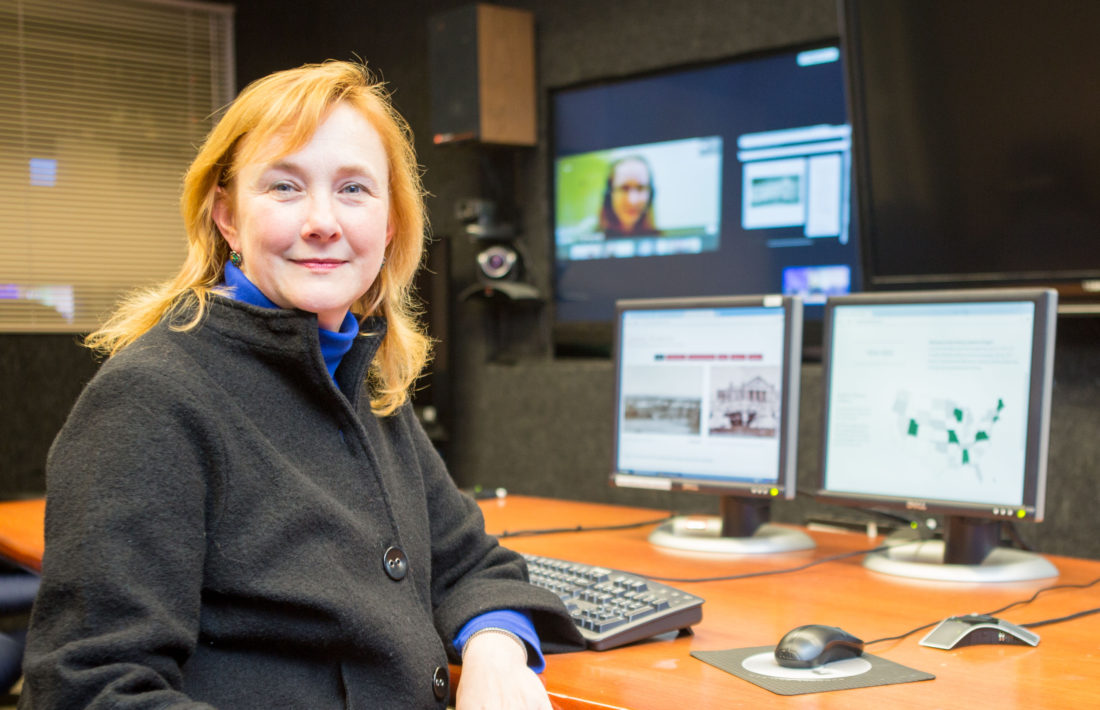No matter the subject, the shelf life for most student research papers is short, says Ellen Holmes Pearson, professor of history at UNC Asheville. “They submit the paper to their professor, the professor reads it, comments on it, gives it a grade, and it goes no further,” she says.
But since 2015, Pearson has worked to change the model through her biennial course, Out of the Archives: Adventures in Digital History. Every other spring, she and her students collaborate with Gene Hyde, university archivist and head of its special collections; together, they conduct research on local history and create individual websites.
“With these projects, our undergraduates’ research becomes public-facing,” Holmes Pearson explains.
On Monday, May 24, at 10:30 a.m., the Swannanoa Valley Museum & History Center invites Holmes Pearson and her class to present their latest findings as part of the museum’s virtual WNC History Cafe series. Tickets are $8 for museum members and $12 for general admission.
Combing through boxes
Topics for the upcoming event include the life and impact of Lucy Saunders Herring, an early 20th-century Black educator; the Phyllis Wheatley branch of the YWCA; and the Asheville Housing Authority’s Montford Project, which involved acquiring property and displacing individuals and families in the Hill-Cherry Street neighborhood of Montford during urban renewal.
For participating UNCA junior Lauren Callaghan, whose group will discuss the housing authority, the sheer abundance of available documents inside the university’s special collections was initially overwhelming. “It’s one thing to just comb through a box of 20-something folders, but it was another thing to actually process all the stuff we were reading and figure out what to include,” she says.
In addition to identifying a narrative thread, Callaghan notes the added pressure that comes with the project’s visibility. “One thing we had to remember throughout the whole project was how public-facing this website will now be and that members of the greater Asheville area can and will see our [work].”
Fellow junior Haley Davison echoes Callaghan’s final point. As a member of the only research team presenting on the life of an individual rather than an institution, Davison says it was important to properly honor Herring’s contributions and legacy, which includes establishing reading clinics for Black students across North Carolina.
Long way to go
In addition to the upcoming presentation, the class’s research will be featured in an ongoing project Holmes Pearson and UNCA colleague Sarah Judson launched this year with architect Jim Samsel: the 828 Digital Archives for Historical Equity.
The new endeavor is a collaborative effort with several community partners and individuals, including the Preservation Society of Asheville and Buncombe County, Western Regional Archives, Western North Carolina Historical Association, the Museum of the Cherokee Indian and local historian Sharon Fahrer. Its mission is to digitize archival records “in order to make them more widely accessible, and to develop an immersive digital museum that will tell an inclusive history of Asheville and its environs,” Holmes Pearson says.
The group is also currently in conversation with the organizations My Daddy Taught Me That, Hood Huggers International, Word on the Street/La Voz de les Jovenes and the Asheville City Schools Foundation “about programs that would involve high school students as ‘citizen archivists,’” Holmes Pearson adds.
These efforts, Holmes Pearson believes, are a positive step in creating a more complete picture of Asheville’s history. “We are fortunate to have people like Katherine Cutshall at the Buncombe County Special Collections, Anne Chesky Smith at WNCHA, artist Andrea Clark and others who are actively involved in gathering materials for researchers and for leading the way toward more inclusive histories,” she says. “But we still have a long way to go.”
To register for the Monday, May 24, presentation, visit avl.mx/9co.




Before you comment
The comments section is here to provide a platform for civil dialogue on the issues we face together as a local community. Xpress is committed to offering this platform for all voices, but when the tone of the discussion gets nasty or strays off topic, we believe many people choose not to participate. Xpress editors are determined to moderate comments to ensure a constructive interchange is maintained. All comments judged not to be in keeping with the spirit of civil discourse will be removed and repeat violators will be banned. See here for our terms of service. Thank you for being part of this effort to promote respectful discussion.